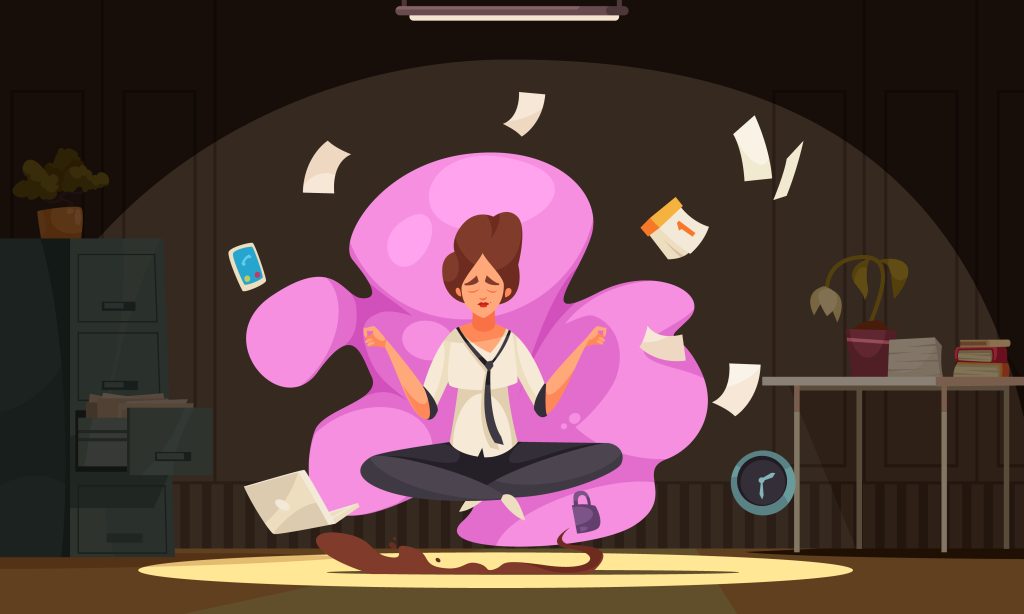Are you overwhelmed by racing thoughts, endless tasks, and a constant mental fog? You’re not alone. Discover how mental clutter disrupts our lives and the most effective ways to clear your mind for greater focus, productivity, and overall wellness.

Understanding Mental Clutter: More Than Just Stress
In today’s fast-paced world, mental clutter has become a growing concern. It’s not just a buzzword; it’s a real condition affecting millions. Mental clutter often feels like a never-ending list of tasks and distractions that overwhelm your mind, making it difficult to focus on what’s truly important. You may feel exhausted, unable to concentrate, or even anxious without knowing why. According to research by Psychology Today (2023), mental clutter can be a form of cognitive overload, leading to feelings of being “stuck” or unproductive. It hampers decision-making and diminishes our overall mental health.
In simpler terms, mental clutter is the digital age’s version of living with too much “stuff” — but in your mind. And just like physical clutter, mental clutter doesn’t go away on its own. Without addressing it, it can build up and take a significant toll on your well-being.
How Mental Clutter Impacts Wellness
When your brain is cluttered, it becomes harder to focus on your health. A cluttered mind may cause you to neglect self-care routines, sleep, or exercise. In fact, studies suggest that excessive mental clutter is directly linked to elevated stress levels, which can trigger issues like poor sleep, anxiety, and even chronic conditions such as hypertension or heart disease.
The American Psychological Association (APA) emphasizes that stress caused by mental overload contributes to the release of cortisol, the body’s stress hormone, which can wreak havoc on our immune system and make it harder to manage emotions effectively.
Moreover, mental clutter can reduce creativity and productivity. When your mind is full of distractions, it’s tough to think clearly or make decisions that align with your values or goals. This ongoing struggle with focus can lead to burnout and decreased job satisfaction, which in turn can affect your career and relationships.
Emerging Trend: The Rise of Mindfulness and Cognitive Cleansing
One of the most promising trends to combat mental clutter is the rise of mindfulness and cognitive cleansing techniques. Practices such as meditation, mindfulness, and even digital detoxes are becoming integral parts of wellness routines.
Mindfulness Meditation: This age-old practice has proven to significantly reduce stress, improve concentration, and help clear mental clutter. By focusing on the present moment, mindfulness helps you detach from the constant swirl of thoughts, allowing you to reconnect with your emotions and intuition.
Digital Detox: In the age of smartphones, emails, and social media, it’s easy to feel perpetually “on.” Research by Harvard Business Review shows that taking regular breaks from screens can reduce mental overload, helping individuals feel more focused and present. A simple 24-hour break from all digital devices can reset your mind and improve your mental clarity.
Cognitive Behavioral Therapy (CBT): A more structured approach involves CBT, which helps individuals restructure negative thought patterns. It teaches practical skills to declutter mental space by challenging intrusive, unhelpful thoughts. Many people are turning to CBT to reduce mental overload and gain clearer, more focused thinking.
Practical Steps to Lighten Mental Clutter
- Declutter Your Environment: Physical clutter often contributes to mental clutter. Start by organizing your workspace or home. Studies have shown that a clean, organized environment can lead to improved focus and better decision-making.
- Prioritize Self-Care: Don’t skip on your sleep, exercise, and nutrition. These are essential for maintaining mental clarity and focus. Regular exercise releases endorphins that combat stress and enhance cognitive function.
- Create “Think” Time: Designate time in your schedule for self-reflection or brainstorming. By allocating time for problem-solving and creative thinking, you can declutter your mind and reduce unnecessary distractions.
- Simplify Your Digital Life: Cut down on apps and notifications that don’t add value to your life. Use tools that help you stay organized without overwhelming your senses. This could include apps like Notion or Todoist for task management or Focus@Will for concentration-enhancing music.
- Journal for Clarity: Writing down your thoughts can significantly reduce mental overload. It’s a powerful way to externalize worries and break them down into manageable pieces. Studies show that journaling for just 15 minutes a day can help clear up mental fog and enhance emotional resilience.
Mental Clutter and Wellness in 2025: A Shift Towards Holistic Solutions
As we enter 2025, mental wellness is no longer just about “getting rid of stress.” It’s about proactively addressing mental clutter before it spirals out of control. From holistic treatments like acupuncture to digital wellness tools, the mental clutter reduction industry is booming.
The future will likely see even more developments in cognitive wellness technology. Apps that provide personalized cognitive exercises, virtual reality mindfulness experiences, and AI-driven therapy will help individuals manage their mental space more effectively. In fact, Forbes highlights that the mental wellness industry is projected to grow by 10% annually in the coming years, reflecting the increasing importance of mental clarity in achieving optimal wellness.
Conclusion
Mental clutter is a barrier to a fulfilling, productive life. But with the right strategies and emerging tools, we can take back control of our minds. By embracing mindfulness, decluttering both our mental and physical environments, and leveraging the latest wellness trends, we can set ourselves up for a healthier, more focused 2025.
References:
- Psychology Today (2023) ‘Mental Clutter: Understanding the Overload of Thoughts’, Available at: https://www.psychologytoday.com (Accessed: 1 July 2025).
- Harvard Business Review (2023) ‘How Digital Detox Can Improve Your Mental Health’, Available at: https://hbr.org (Accessed: 1 July 2025).
- American Psychological Association (APA) (2022) ‘The Impact of Stress on Mental Clarity and Focus’, Available at: https://www.apa.org (Accessed: 1 July 2025).






